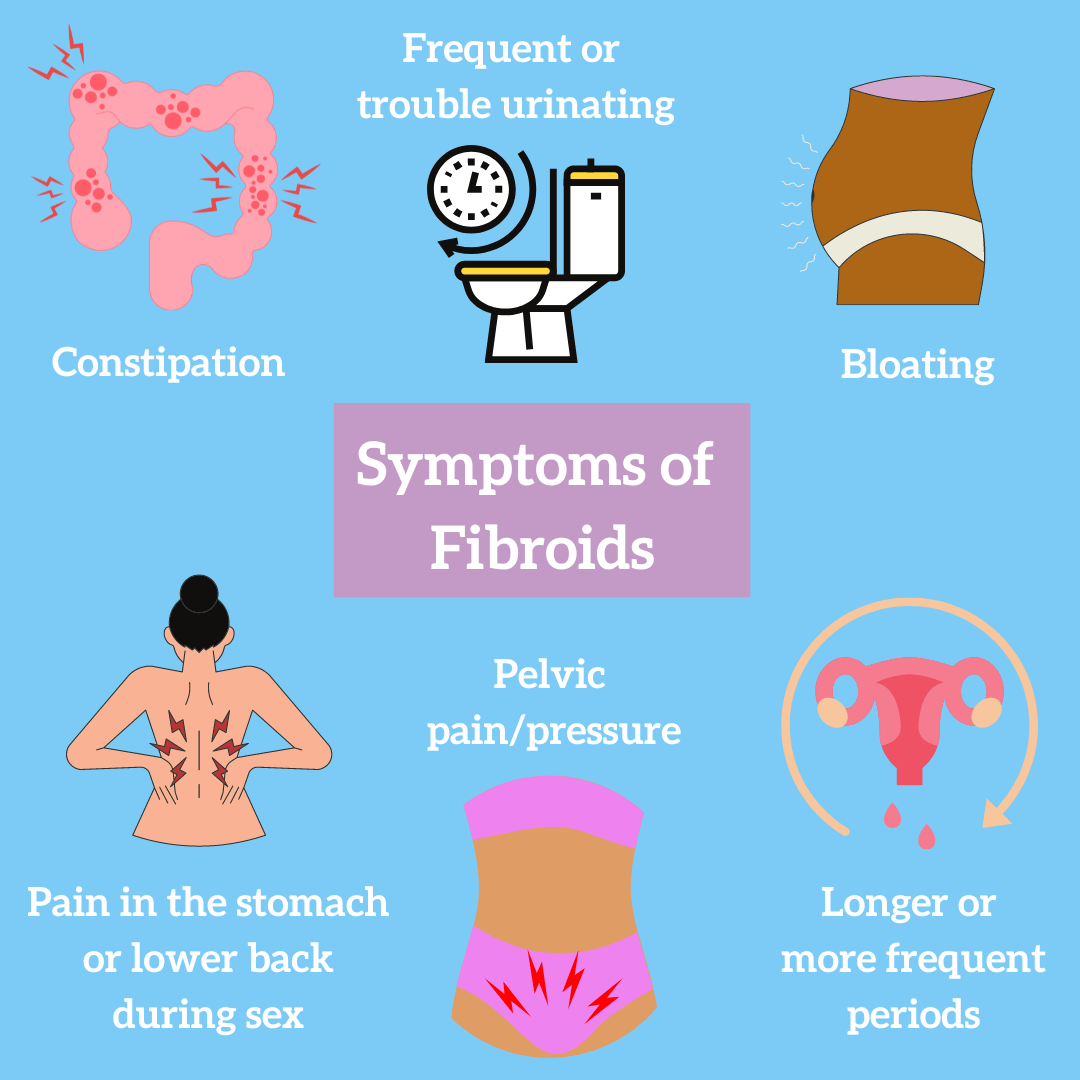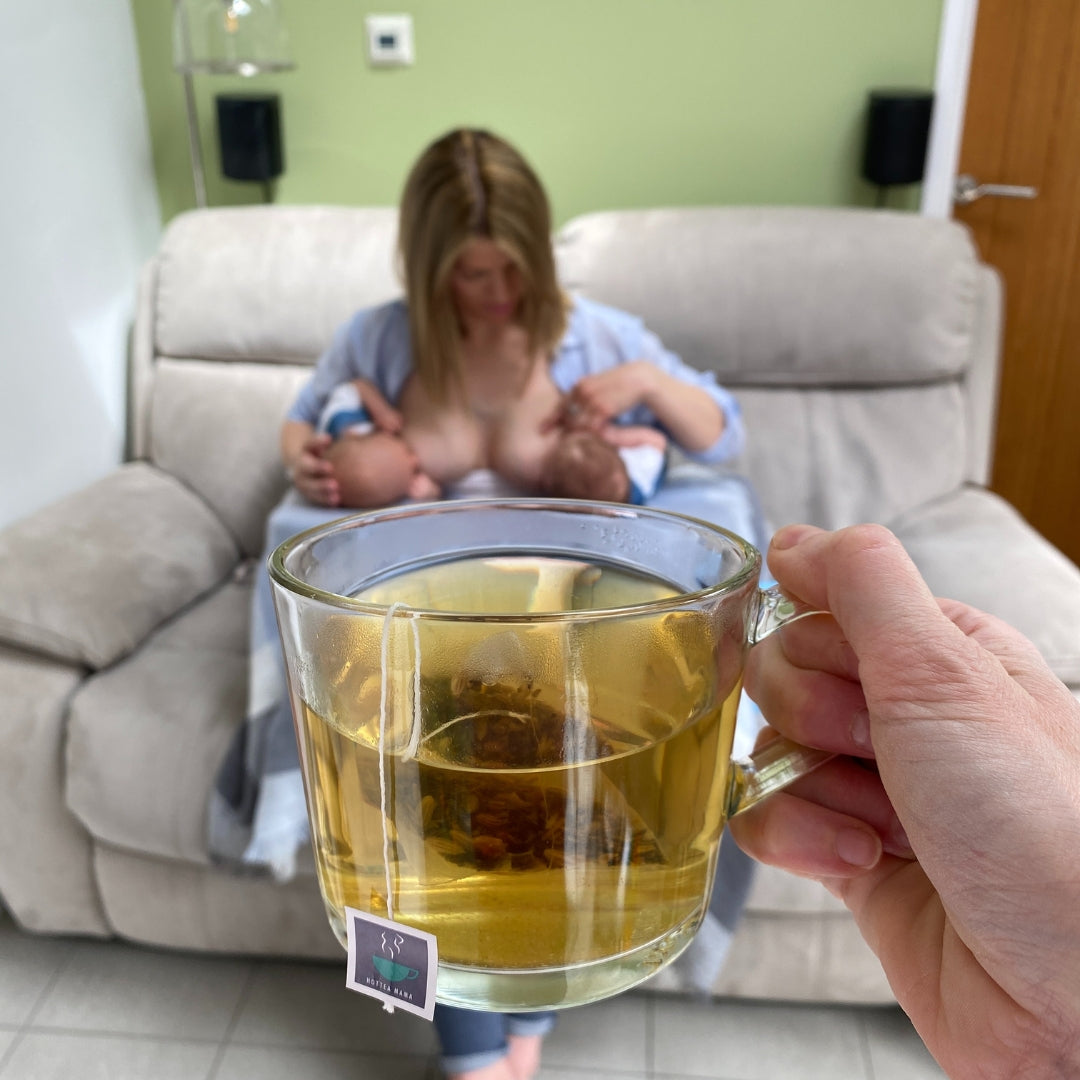Fibroids - Symptoms & Treatment

Despite the fact that 2 in 3 women will get a fibroid at some point in their lifetime it is still a relatively unknown condition.
Fibroids are most common between the ages of 30-50. For black women, the chance of having a fibroid is higher. The exact cause of fibroids is unknown, but they have been linked to the hormone oestrogen.
Oestrogen is the female reproductive hormone produced by the ovaries (the female reproductive organs).
A recent survey conducted by the Wellbeing of Women Charity, found that only 39% of women and girls were aware of them. So women are not getting the support they need when they are experiencing symptoms.
Fibroids vary in number and size. Some are too small to see with the eyes, whilst others can grow to the size of a grapefruit or larger.
Some large fibroids can distort the inside and the outside of the uterus. In extreme cases, some fibroids grow large enough to fill the pelvis or stomach area, which can make a person look pregnant.
Symptoms
Many women are unaware they have fibroids because they do not have any symptoms.
Women who do have symptoms (around 1 in 3) may experience:
- Heavy menstrual bleeding or painful periods
- Longer or more frequent periods
- Pelvic pressure or pain
- Frequent urination or trouble urinating
- Growing/bloated stomach area
- Constipation
- Pain in the stomach area or lower back, or pain during sex
When to see a Doctor
Treatment may not be necessary if you have fibroids but do not have any symptoms, or if you only have minor symptoms that are not significantly affecting your everyday activities.
However you should book an appointment to see your GP if you are experiencing any of the following symptoms:
- Pelvic pain that doesn't go away
- Heavy or painful periods that limit what you can do
- Spotting or bleeding between periods
- Trouble emptying your bladder
- Ongoing tiredness and weakness, which can be symptoms of anaemia
- If you have severe bleeding from the vagina or sharp pelvic pain that comes on fast get medical care immediately
Treatment
Treatment may not be necessary if you have fibroids but do not have any symptoms, or if you only have minor symptoms that are not significantly affecting your everyday activities.
If you have fibroids that need treatment, your GP may recommend medicine, or if your symptoms are more severe surgery, to help relieve your symptoms.
Medicines are available that can be used to reduce heavy periods, but they can be less effective the larger your fibroids are.
These medicines will either help the symptoms of inflammation, or will be prescribed to shrink the fibroids.
Surgery to remove your fibroids may be recommended if your symptoms are severe, and prescribed medicines have been ineffective. The two most common types of surgery are:
- Hysterectomy - this may be recommended if you have large fibroids, or severe bleeding and do not wish to have any more children.
- Myomectomy - this surgery will remove the fibroids from the wall of your womb. It may be considered as an alternative to a hysterectomy if you'd still like to have children.
Treatments will all depend on the size of your fibroids, and the symptoms that you are experiencing. It is important that you book an appointment with your GP to discuss the best treatment plan for you.
For further information and support please visit the NHS and Wellbeing of Women websites.




Comments